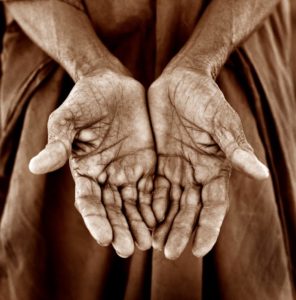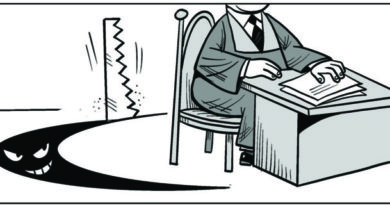Charity without publicity, please – Letter to Editor
WITHOUT a shadow of a doubt, Malaysians are warm-hearted and charitable. These are not mere words of self-adulation but it has been proven umpteen times. From mishaps to disasters, local or foreign – help will flow almost instantly. Mercy and Makna are testimonies to these.
 This is also where Malaysians are colour blind and their humane side seems to overwhelm everything else. This in a way is payback because, globally by far, we are the most fortunate people who are “protected” from all manner of calamities, especially the “natural” ones.
This is also where Malaysians are colour blind and their humane side seems to overwhelm everything else. This in a way is payback because, globally by far, we are the most fortunate people who are “protected” from all manner of calamities, especially the “natural” ones.
If there is any, it is often self-inflicted due to greed and irresponsibility on our part. At times “justified” under the banner of “development” and “progress”. Unfortunately, there are many examples of these. And it does not seem to stop, fired by some ludicrous foreign investment that is causing a “derailment” (no pun intended) not seen before. This form of “generosity” is not acceptable as said  repeatedly by several parties including Jack Ma.
repeatedly by several parties including Jack Ma.
Another obvious downside is when the act of humility when giving charity or alms assumes a form of arrogance such that it overshadows the former. It takes away the deeper meaning of what being charitable is all about and substitutes it with superficiality of handing out stuff devoid of any value attached to it.
It becomes more publicity-driven (aka CSR) putting the “giver” before the “needy” who are often caught in an awkward situation not of their making. Yet they are made to suffer the humiliation of being paraded around to receive some “aid” and “donation” just to survive. Worse when it takes place during the month of Ramadan or on other auspicious occasions where the emphasis is about brotherhood and kinship. Yet this is not to be when one is elevated over another publicly in an undignified fashion. This column has often spoken out about such (mis)treatment especially when the elderly were made to form a beeline for “handouts” from VIPs and elected representatives in full view of the media to be broadcast on prime time news. Some of them are parent-like to the “giver” and the question that comes to mind is: would we allow this if they were our parents? If not why do it to others? Why the double standards? It is unbecoming.
Likewise for the underaged and (pre)school children. In their case, they have to kiss the hands of the “giver” publicly in return. Not only is it awkward to kiss the hands of “strangers” to receive some brightly coloured envelope or goodies, more than that it is unhygienic.
Imagine if you are number 10 in a queue, you are not sure what bugs those before you have passed on to the hand that you are about to kiss. This is assuming the hand was hygienic (if not sanitised) to start with. So should this practice of kissing the hand in gratitude be encouraged? Would not a hearty terima kasih be good enough?
But this is not to say that kissing the hands of an elderly person and loved ones is not culturally relevant.
It has its place, often in the privacy of homes, a solemn occasion between close family members and friends. It is often done with decorum (adab) at times accompanied by tears to mark the intimacy involved.
Not like the “media” version where it is done mechanically, almost robot-like, with the “giver” grinning away. Over time it is being taken for granted as beholden to the “giver” (including the powers that be) when actually it is one’s entitlement as a citizen of the country. It becomes more absurd when the “gift” has nothing to do with the “giver” who acts as a mere convenient intermediary. In other words, the gratitude expressed is misplaced that could spin into an act of “bodek-ing” (brown-nosing) that the MACC chief was loud about (timely so) last week. The tie-up is rather subtle but some individuals seem to bend to exploit matters for their selfish purpose. Hence the phenomenon got amplified during elections and led to coining of the word “dedak”. It likened the recipients to mindless “creatures” hard-up for “freebies” dangled in front of them. A dehumanising thought indeed.
In a nutshell, what started as something noble and humble has been twisted to convey the opposite. That is to say the line between what is “truly charitable” and the contrast has been gradually blurred.
As a firm reminder let us revisit some conventional wisdom. From the Islamic tradition of the Prophet it relates to the moment when a person gives in charity and makes no mention of it, so that the other hand does not know about it at all.
This tradition resonates closely with what the Bible teaches: When you give, do not let your left hand know what your right is doing (Matthew 6:3). There must be more examples in the same light implying succinctly that the value of charity is not in the publicity it garners, but rather the humility of doing so to empathise in an accountable and discreet way.
Tabung Harapan Malaysia almost got it right when it only provides updates at 3pm daily without fanfare. It is only when this rule of thumb is exceeded that it invites allegations across the board including those impressionable youngsters who innocently fell into the trap as per the “old” ways.
Like the no-gift policy, it is time for a no-publicity policy when it comes to charity. Let us celebrate “humility” instead.
Dzulkifli Abdul Razak
June 2018 – 08:10am
With some four decades of experience in education, the writer believes that “another world is possible”. Comments: [email protected]


 All photographs, news, editorials, opinions, information, data, others have been taken from the Internet ..aseanews.net |
All photographs, news, editorials, opinions, information, data, others have been taken from the Internet ..aseanews.net | 






